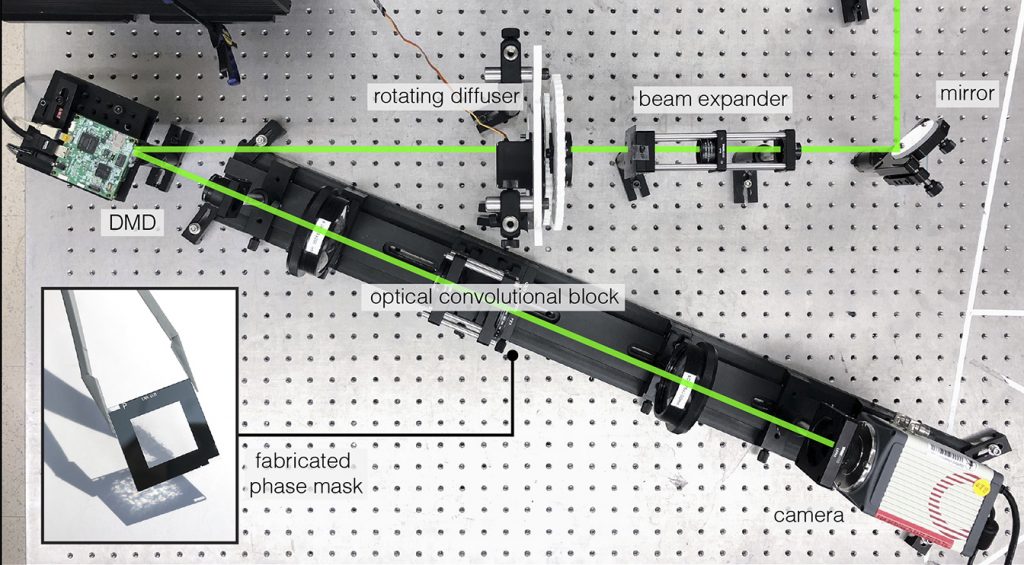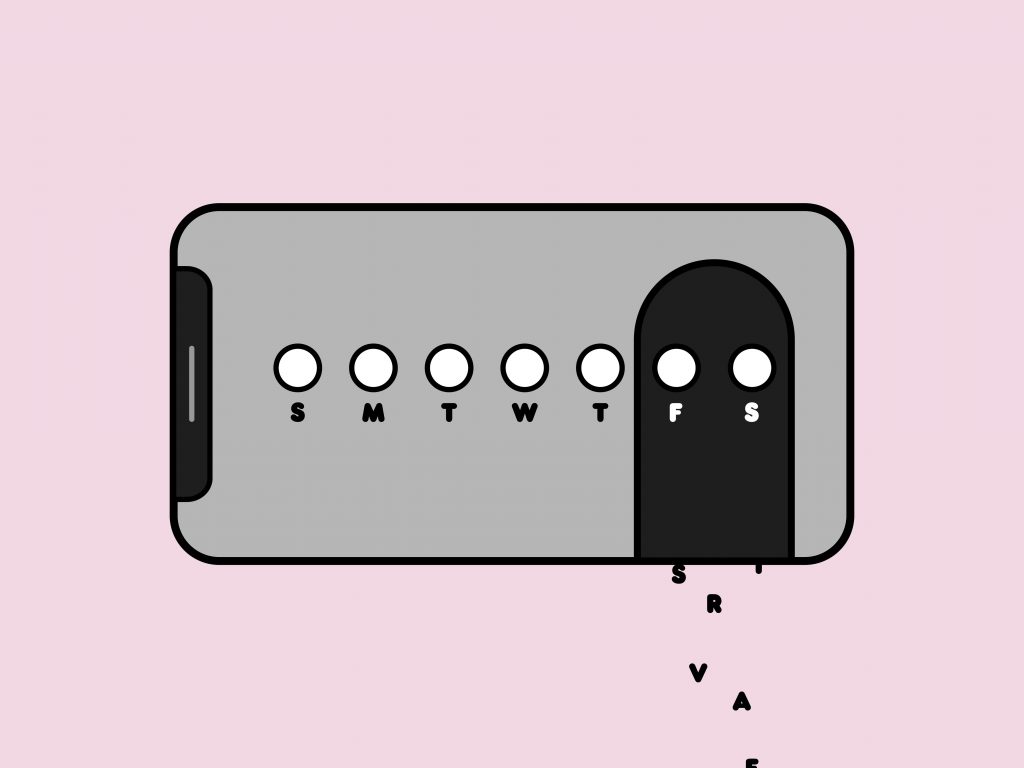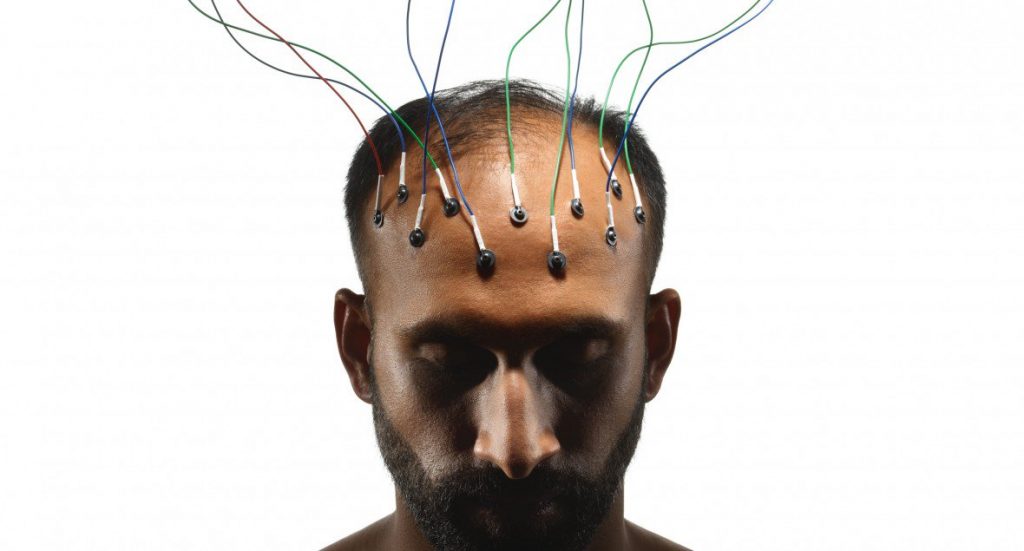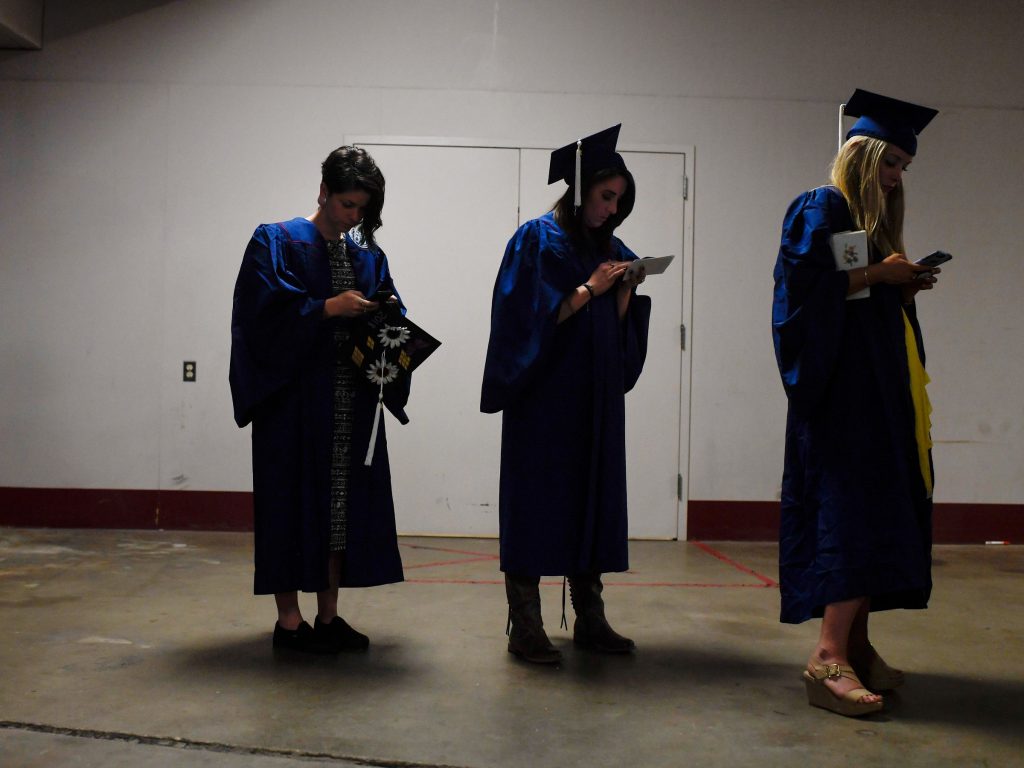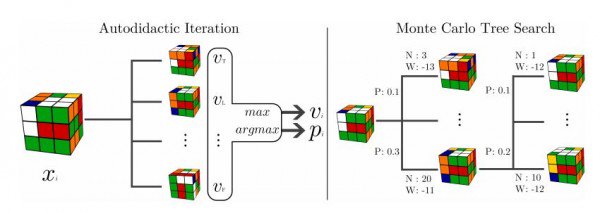Reading all the gushing praise for Google’s new Night Sight low-light photography feature for Pixel phones, you’d be forgiven for thinking Google had just invented color film. In fact, night shooting modes aren’t new, and many of the underlying technologies go back years. But Google has done an amazing job of combining its prowess in computational imaging with its unparalleled strength in machine learning to push the capability past anything previously seen in a mobile device. We’ll take a look at the history of multi-image capture low-light photography, how it is likely used by Google, and speculate about what […] […]
Category: Research
Stanford Researchers Build AI Directly Into Camera Optics
Until recently, cameras were exclusively designed to create images for humans — for fun, for art, and for documenting history. With the rapid growth of robots as well as various other kinds of machines and vehicles that need to observe and learn from their environment, many cameras are dedicated to machine vision tasks. Some of the most visible of those, like autonomous vehicles , rely heavily on object recognition, which almost universally means neural networks trained on commonly found objects. One limitation on the deployment of machine vision in many embedded systems, including electric vehicles, is the necessary compute […] […]
Some of the Oldest Galaxies in the Universe Orbit the Milky Way
When the universe was young, there were no stars, galaxies , or even atoms. As space expanded, hydrogen atoms formed and coalesced into stars. Eventually, the first galaxies emerged, and some of those galaxies may still exist. New data from researchers at Durham University in the UK and Harvard in the US suggests several of those ancient galaxies could be in our own backyard . This discovery also lends credence to a leading model of the early universe. Our current understanding holds that the early universe was not even transparent to radiation. It took thousands of years for that […] […]
Before Using Birth Control Apps, Consider Your Privacy
Hotlittlepotato Score one for the quantified self-surveillance movement. Last week, the US Food and Drug Agency approved the first-ever, over-the-counter digital contraceptive—a polished and almost preternaturally upbeat mobile app called Natural Cycles . Basal body temperature readings and monthly menstruation data feed into an algorithm that tells users whether or not they should be having unprotected sex. Like most forms of birth control, it’s not foolproof ; the app has been dogged by reports of unwanted pregnancies that prompted two ongoing investigations by European authorities into its Swedish maker’s marketing claims. But that hasn’t hurt Natural Cycles’ popularity. The […] […]
Self-Driving Cars Should Look Down, Not Just Ahead
WaveSense ground penetrating radar tech comes out of MIT’s Lincoln Laboratory, a defense R&D center, and was first deployed to help troops navigate in Afghanistan in 2013. Self-driving cars are like snowbird retirees. Given the freedom to live, or operate, anywhere in the country, they turn their backs on wintry states and flock to the sun. There’s a reason Waymo, Uber, and even grocery story giant, Kroger, are testing their shiny new autonomous vehicles in southwestern cities like Phoenix. Yes, Arizona’s regulations are friendly to them, but the year-round good weather is the major draw. As sophisticated as these […] […]
The “neuropolitics” consultants who hack voters’ brains
Maria Pocovi slides her laptop over to me with the webcam switched on. My face stares back at me, overlaid with a grid of white lines that map the contours of my expression. Next to it is a shaded window that tracks six “core emotions”: happiness, surprise, disgust, fear, anger, and sadness. Each time my expression shifts, a measurement bar next to each emotion fluctuates, as if my feelings were an audio signal. After a few seconds, a bold green word flashes in the window: ANXIETY. When I look back at Pocovi, I get the sense she knows exactly […] […]
EU to fine social media platforms that take more than 1 hour to remove extremist content
The European Union is reportedly planning to impose stricter regulations on social media platforms including Facebook, YouTube , and Twitter over the removal of online terrorist propaganda. The Financial Times reported on Sunday that according to new draft regulations to be published next month, the EU plans to impose fines on companies if terrorist content is not deleted within an hour of posting, abandoning its earlier approach of getting internet platforms to remove such content voluntarily. The upcoming legislation builds on guidelines first prescribed by the EU in March for removal of radicalizing online content within one hour. Following […] […]
Distributed teams are rewriting the rules of office(less) politics
When we think about designing our dream home, we don’t think of having a thousand roommates in the same room with no doors or walls. Yet in today’s workplace where we spend most of our day, the purveyors of corporate office design insist that tearing down walls and bringing more people closer together in the same physical space will help foster better collaboration while dissolving the friction of traditional hierarchy and office politics. But what happens when there is no office at all? This is the reality for Jason Fried, Founder and CEO of Basecamp , and Matt Mullenweg, […] […]
Schools Are Mining Students’ Social Media Posts for Signs of Trouble
Aron Ontiveroz/The Denver Post/Getty Images Aaah, the traditions of a new school year. New teachers, new backpacks, new crushes—and algorithms trawling students’ social media posts. Blake Prewitt, superintendent of Lakeview school district in Battle Creek, Michigan, says he typically wakes up each morning to twenty new emails from a social media monitoring system the district activated earlier this year. It uses keywords and machine learning algorithms to flag public posts on Twitter and other networks that contain language or images that may suggest conflict or violence, and tag or mention district schools or communities. In recent months the alert […] […]
Technofobie of dreigende dystopie?
In China worden grote stappen gezet richting een maatschappij waarin burgers continu worden gevolgd, gemonitord en beoordeeld. Een sociale score moet ervoor zorgen dat men netjes wacht op het stoplicht, vaak op bezoek gaat bij familie en op tijd op het werk verschijnt. Overtredingen leveren strafpunten op en daarmee een lagere score waarmee je minder recht hebt op een goede baan of een appartement. Het is nu nog optioneel, maar in 2020 ontkomt de Chinese burger er niet meer aan. De Volkskrant schrijft in een artikel over de Chinese technologie dat wij, in het westen, nog ‘huiverig’ zijn qua […] […]
Hubble Captures 15,000 Galaxies in a Single Stunning Image
Early in Hubble’s mission, it scanned a patch of sky for 10 days to collect 342 separate images. When assembled, they became the now-famous Hubble Deep Field. NASA has updated this iconic image over the years as the telescope became more powerful, and it’s doing so again. Hubble may be inching toward obsolescence with the upcoming launch of the James Webb Space Telescope (JWST), but it’s still producing amazing images. The newest panoramic view of the universe shows more galaxies than ever before . According to NASA, the new image features a whopping 15,000 galaxies, and 12,000 of them […] […]
How to Protect Yourself Against a SIM Swap Attack
Casey Chin A spate of hacked Instagram accounts. A $220 million lawsuit against AT&T. A bustling underground crime ring . They all have roots in an old problem that has lately found new urgency: SIM card swaps , a scam in which hackers steal your mobile identity—and use it to upend your life . At its most basic level, a SIM swap is when someone convinces your carrier to switch your phone number over to a SIM card they own. They’re not doing it for prank call cover, or to rack up long-distance charges. By diverting your incoming messages, […] […]
Smart irrigation systems vulnerable to attacks, warn researchers
Security researchers have warned of a potential attack that – using a “piping botnet ” of internet-connected irrigation systems that water simultaneously – could impact a city’s water system to the point of actually draining its reserves. A team of six academics from Ben-Gurion University of Negev, Israel, identified and analyzed security flaws in the firmware of several commercial irrigation systems that are connected to the internet. They focused on three commonly sold smart irrigation systems – GreenIQ, BlueSpray, and RainMachine – and found that they suffer from vulnerabilities that enable attackers to remotely turn watering systems on and […] […]
Eng: Facebook volgt je op nóg veel meer manieren dan je denkt
Dat we op de voet gevolgd worden door Facebook is inmiddels alom bekend, maar nu dat de social media-gigant antwoord heeft gegeven op vragen die in het Amerikaanse congres zijn gesteld blijkt dat het allemaal nog veel verder gaat dan we allemaal dachten. Dit zijn een aantal van de manieren waarop Mark Zuckerberg & Co. ons volgen op het internet, allemaal gehaald uit het document van 222 pagina’s dat is doorgestuurd naar het Congres. Een gedeelte van deze tracking-methodes kenden we al, maar als je het allemaal achter elkaar zet zul je zien dat er heel weinig geheim blijft […] […]
Een film die je kunt sturen met je brein
Aan de universiteit van Nottingham hebben ze iets voor elkaar gekregen wat in eerste instantie lijkt op een goed science fiction verhaal. Waar je normaal gesproken in de bioscoopzaal of op de bank een film kijkt waarvan de slotscène al lang en breed vastligt, kun je nu ook een film kijken die nog alle kanten op kan gaan. De film ‘The Moment’ vormt zich naar de toestand van je brein. Dit zit zo. De activiteit in je brein wordt gemeten met EEG, middels een headset die het hoofd is bevestigd. Hiermee kan gekeken worden of je bijvoorbeeld slaapt, ontspannen […] […]
Signature Validation Bug Let Malware Bypass Several Mac Security Products
A years-old vulnerability has been discovered in the way several security products for Mac implement Apple’s code-signing API that could make it easier for malicious programs to bypass the security check, potentially leaving millions of Apple users vulnerable to hackers. Josh Pitts, a researcher from security firm Okta, discovered that several third-party security products for Mac—including Little Snitch, F-Secure xFence, VirusTotal, Google Santa, and Facebook OSQuery—could be tricked into believing that an unsigned malicious code is signed by Apple. Code-signing mechanism is a vital weapon in the fight against malware, which helps users identify who has signed the app […] […]
Robots Won’t Take Your Job—But They Might Make It Boring
Robert Deyrail/Getty Images Whether they believe robots are going to create or destroy jobs, most experts say that robots are particularly useful for handling “dirty, dangerous and dull” work. They point to jobs like shutting down a leaky nuclear reactor , cleaning sewers , or inspecting electronic components to really drive the point home. Robots don’t get offended, they are cheap to repair when they get “hurt,” and they don’t get bored. It’s hard to disagree: What could possibly be wrong about automating jobs that are disgusting, mangle people, or make them act like robots? The problem is that […] […]
Cognitive diversity and marketing: How AI is improving innovation
NASA employee George Washington handles clerical work more quickly and efficiently than ever before. He never complains about working late hours and he never needs to stop for a coffee break. Washington is a bot who takes in information from emails and identifies job candidate suitability — something formerly completed by human resources personnel. He represents a new type of diversity within organizations, cognitive diversity. Cognitive diversity, simply put, includes different ways of thinking. It consists of both humans (cognitive thinking) and machines (cognitive technologies). Today, automation is pouring into the workplace at an accelerating rate. Cognitive technologies involve: […] […]
With its new in-car operating system, BMW slowly breaks with tradition
When you spend time with a lot of BMW folks, as I did during a trip to Germany earlier this month, you’ll regularly hear the word “ heritage .” Maybe that’s no surprise, given that the company is now well over 100 years old. But in a time of rapid transformation that’s hitting every car manufacturer, engineers and designers have to strike a balance between honoring that history and looking forward. With the latest version of its BMW OS in-car operating system and its accompanying design language, BMW is breaking with some traditions to allow it to look into […] […]
A machine has figured out Rubik’s Cube all by itself
Unlike chess moves, changes to a Rubik’s Cube are hard to evaluate, which is why deep-learning machines haven’t been able to solve the puzzle on their own. Until now. Yet another bastion of human skill and intelligence has fallen to the onslaught of the machines. A new kind of deep-learning machine has taught itself to solve a Rubik’s Cube without any human assistance. The milestone is significant because the new approach tackles an important problem in computer science—how to solve complex problems with when help is minimal. First some background. The Rubik’s Cube is a three-dimensional puzzle developed in […] […]


